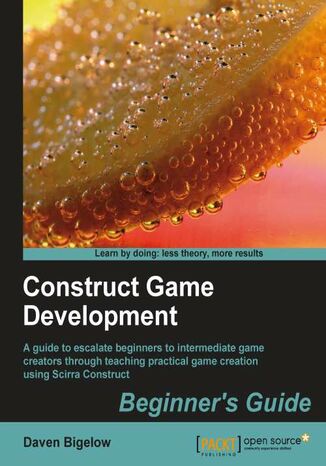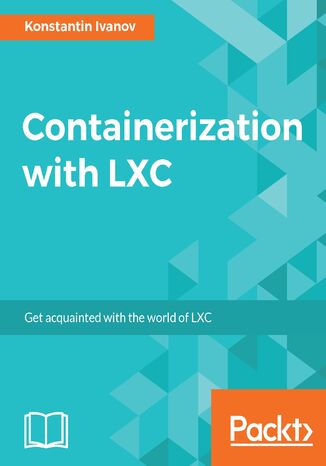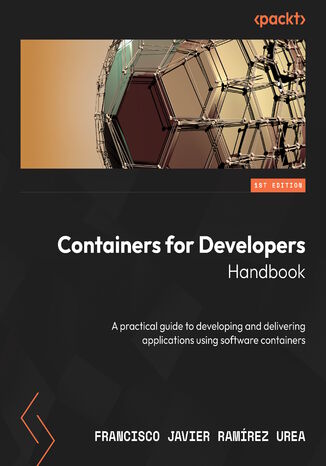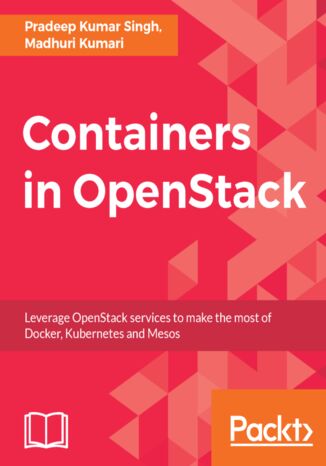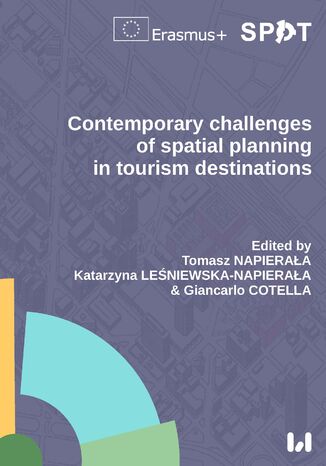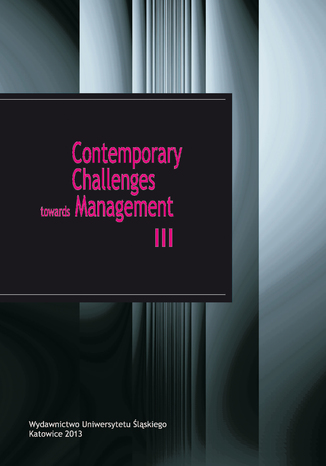Категорії
-
- Біткойн
- Ділова жінка
- Коучинг
- Контроль
- Електронний бізнес
- Економіка
- Фінанси
- Фондова біржа та інвестиції
- Особисті компетенції
- Комп'ютер в офісі
- Комунікація та переговори
- Малий бізнес
- Маркетинг
- Мотивація
- Мультимедійне навчання
- Нерухомість
- Переконання та НЛП
- Податки
- Соціальна політика
- Порадники
- Презентації
- Лідерство
- Зв'язки з громадськістю
- Звіти, аналізи
- Секрет
- Соціальні засоби комунікації
- Продаж
- Стартап
- Ваша кар'єра
- Управління
- Управління проектами
- Людські ресурси (HR)
-
- Architektura i wnętrza
- Безпека життєдіяльності
- Biznes i Ekonomia
- Будинок та сад
- Електронний бізнес
- Ekonomia i finanse
- Езотерика
- Фінанси
- Особисті фінанси
- Бізнес
- Фотографія
- Інформатика
- Відділ кадрів та оплата праці
- Для жінок
- Комп'ютери, Excel
- Бухгалтерія
- Культура та література
- Наукові та академічні
- Охорона навколишнього середовища
- Впливові
- Освіта
- Податки
- Подорожі
- Психологія
- Релігія
- Сільське господарство
- Ринок книг і преси
- Транспорт та спедиція
- Здоров'я та краса
-
- Офісні застосунки
- Бази даних
- Біоінформатика
- Бізнес ІТ
- CAD/CAM
- Digital Lifestyle
- DTP
- Електроніка
- Цифрова фотографія
- Комп'ютерна графіка
- Ігри
- Хакування
- Hardware
- IT w ekonomii
- Наукові пакети
- Шкільні підручники
- Основи комп'ютера
- Програмування
- Мобільне програмування
- Інтернет-сервери
- Комп'ютерні мережі
- Стартап
- Операційні системи
- Штучний інтелект
- Технологія для дітей
- Вебмайстерність
-
- Антології
- Балада
- Біографії та автобіографії
- Для дорослих
- Драми
- Журнали, щоденники, листи
- Епос, епопея
- Нарис
- Наукова фантастика та фантастика
- Фельєтони
- Художня література
- Гумор, сатира
- Інше
- Класичний
- Кримінальний роман
- Нехудожня література
- Художня література
- Mity i legendy
- Лауреати Нобелівської премії
- Новели
- Побутовий роман
- Okultyzm i magia
- Оповідання
- Спогади
- Подорожі
- Оповідна поезія
- Поезія
- Політика
- Науково-популярна
- Роман
- Історичний роман
- Проза
- Пригодницька
- Журналістика
- Роман-репортаж
- Romans i literatura obyczajowa
- Сенсація
- Трилер, жах
- Інтерв'ю та спогади
-
- Археологія
- Bibliotekoznawstwo
- Кінознавство / Теорія кіно
- Філологія
- Польська філологія
- Філософія
- Finanse i bankowość
- Географія
- Економіка
- Торгівля. Світова економіка
- Історія та археологія
- Історія мистецтва і архітектури
- Культурологія
- Мовознавство
- літературні студії
- Логістика
- Математика
- Ліки
- Гуманітарні науки
- Педагогіка
- Навчальні засоби
- Науково-популярна
- Інше
- Психологія
- Соціологія
- Театральні студії
- Богослов’я
- Економічні теорії та науки
- Transport i spedycja
- Фізичне виховання
- Zarządzanie i marketing
-
- Безпека життєдіяльності
- Історія
- Дорожній кодекс. Водійські права
- Юридичні науки
- Охорона здоров'я
- Загальне, компендіум
- Академічні підручники
- Інше
- Закон про будівництво і житло
- Цивільне право
- Фінансове право
- Господарське право
- Господарське та комерційне право
- Кримінальний закон
- Кримінальне право. Кримінальні злочини. Кримінологія
- Міжнародне право
- Міжнародне та іноземне право
- Закон про охорону здоров'я
- Закон про освіту
- Податкове право
- Трудове право та законодавство про соціальне забезпечення
- Громадське, конституційне та адміністративне право
- Кодекс про шлюб і сім'ю
- Аграрне право
- Соціальне право, трудове право
- Законодавство Євросоюзу
- Промисловість
- Сільське господарство та захист навколишнього середовища
- Словники та енциклопедії
- Державні закупівлі
- Управління
-
- Африка
- Альбоми
- Південна Америка
- Центральна та Північна Америка
- Австралія, Нова Зеландія, Океанія
- Австрія
- Азії
- Балкани
- Близький Схід
- Болгарія
- Китай
- Хорватія
- Чеська Республіка
- Данія
- Єгипет
- Естонія
- Європа
- Франція
- Гори
- Греція
- Іспанія
- Нідерланди
- Ісландія
- Литва
- Латвія
- Mapy, Plany miast, Atlasy
- Мініпутівники
- Німеччина
- Норвегія
- Активні подорожі
- Польща
- Португалія
- Інше
- Przewodniki po hotelach i restauracjach
- Росія
- Румунія
- Словаччина
- Словенія
- Швейцарія
- Швеція
- Світ
- Туреччина
- Україна
- Угорщина
- Велика Британія
- Італія
-
- Філософія життя
- Kompetencje psychospołeczne
- Міжособистісне спілкування
- Mindfulness
- Загальне
- Переконання та НЛП
- Академічна психологія
- Психологія душі та розуму
- Психологія праці
- Relacje i związki
- Батьківство та дитяча психологія
- Вирішення проблем
- Інтелектуальний розвиток
- Секрет
- Сексуальність
- Спокушання
- Зовнішній вигляд та імідж
- Філософія життя
-
- Біткойн
- Ділова жінка
- Коучинг
- Контроль
- Електронний бізнес
- Економіка
- Фінанси
- Фондова біржа та інвестиції
- Особисті компетенції
- Комунікація та переговори
- Малий бізнес
- Маркетинг
- Мотивація
- Нерухомість
- Переконання та НЛП
- Податки
- Соціальна політика
- Порадники
- Презентації
- Лідерство
- Зв'язки з громадськістю
- Секрет
- Соціальні засоби комунікації
- Продаж
- Стартап
- Ваша кар'єра
- Управління
- Управління проектами
- Людські ресурси (HR)
-
- Антології
- Балада
- Біографії та автобіографії
- Для дорослих
- Драми
- Журнали, щоденники, листи
- Епос, епопея
- Нарис
- Наукова фантастика та фантастика
- Фельєтони
- Художня література
- Гумор, сатира
- Інше
- Класичний
- Кримінальний роман
- Нехудожня література
- Художня література
- Mity i legendy
- Лауреати Нобелівської премії
- Новели
- Побутовий роман
- Okultyzm i magia
- Оповідання
- Спогади
- Подорожі
- Поезія
- Політика
- Науково-популярна
- Роман
- Історичний роман
- Проза
- Пригодницька
- Журналістика
- Роман-репортаж
- Romans i literatura obyczajowa
- Сенсація
- Трилер, жах
- Інтерв'ю та спогади
-
- Філософія життя
- Міжособистісне спілкування
- Mindfulness
- Загальне
- Переконання та НЛП
- Академічна психологія
- Психологія душі та розуму
- Психологія праці
- Relacje i związki
- Батьківство та дитяча психологія
- Вирішення проблем
- Інтелектуальний розвиток
- Секрет
- Сексуальність
- Спокушання
- Зовнішній вигляд та імідж
- Філософія життя
Daven Bigelow, Daven Eric Bigelow
Construct Classic is a free, DirectX 9 game creator for Windows, designed for 2D games. Construct Classic uses an event-based system for defining how the game behaves, in a visual, human-readable way - you don't need to program or script anything at all. It's intuitive for beginners, but powerful enough for advanced users to work without hindrance. You never know when you'll need a helping hand exploring its inner workings, or harnessing its raw power to do your bidding.Construct Game Development Beginner's Guide is the book for you if you have ever felt the urge to make a game of your own. Reading this book will not only teach you to make some popular games using Construct, but you'll also learn the skills necessary to continue on and bring your game ideas to life.Starting as a beginner to Construct Classic, you'll be learning to make platform, puzzle, and shooter games, each styled after popular games of their genre.This guide covers everything from creating animated sprites, to using the built-in physics and shadow engines of Construct Classic. You will learn the skills necessary to make advanced games of your own.Construct Game Development Beginner's Guide will lead you on your journey of making games.
George Sand le pseudonyme de lécrivain français Aurora Dupin-Dyudevan. Dans ses nombreuses uvres, les idées de libération de la personnalité se combinent une recréation psychologique de talent de personnages idéalement sublimes, de conflits damour complexes. Le roman Consuelo est une histoire fascinante de la vie dun jeune chanteur qui doit surmonter des épreuves difficiles en donnant son art aux gens. Il sagit dun livre sur le destin dun véritable artiste, sur le lourd fardeau du talent accordé par le destin, sur le choix difficile et parfois mme tragique entre la gloire et le bonheur personnel.
Containerization with LXC. Build, manage, and configure Linux containers
In recent years, containers have gained wide adoption by businesses running a variety of application loads. This became possible largely due to the advent of kernel namespaces and better resource management with control groups (cgroups). Linux containers (LXC) are a direct implementation of those kernel features that provide operating system level virtualization without the overhead of a hypervisor layer. This book starts by introducing the foundational concepts behind the implementation of LXC, then moves into the practical aspects of installing and configuring LXC containers. Moving on, you will explore container networking, security, and backups. You will also learn how to deploy LXC with technologies like Open Stack and Vagrant. By the end of the book, you will have a solid grasp of how LXC is implemented and how to run production applications in a highly available and scalable way.
Developers are changing their deployment artifacts from application binaries to container images, giving rise to the need to build container-based apps as part of their new development workflow. Managing an app’s life cycle is complex and requires effort—this book will show you how to efficiently develop, share, and execute applications.You’ll learn how to automate the build and delivery process using CI/CD tools with containers as container orchestrators manage the complexity of running cluster-wide applications, creating infrastructure abstraction layers, while your applications run with high availability, resilience, and persistence. As you advance, you’ll develop, test, and debug applications on your desktop and get them ready to run in production with optimal security standards, using deployment patterns and monitoring tools to help identify common issues. You’ll also review deployment patterns that’ll enable you to solve common deployment problems, providing high availability, scalability, and security to your applications. Finally, you’ll explore different solutions to monitor, log, and instrument your applications as per open-source community standards.By the end of this book, you’ll be able to manage your app’s life cycle by implementing CI/CD workflows using containers to automate the building and delivery of its components.
Madhuri Kumari, Pradeep Kumar Singh
Containers are one of the most talked about technologies of recent times. They have become increasingly popular as they are changing the way we develop, deploy, and run software applications. OpenStack gets tremendous traction as it is used by many organizations across the globe and as containers gain in popularity and become complex, it’s necessary for OpenStack to provide various infrastructure resources for containers, such as compute, network, and storage.Containers in OpenStack answers the question, how can OpenStack keep ahead of the increasing challenges of container technology? You will start by getting familiar with container and OpenStack basics, so that you understand how the container ecosystem and OpenStack work together. To understand networking, managing application services and deployment tools, the book has dedicated chapters for different OpenStack projects: Magnum, Zun, Kuryr, Murano, and Kolla. Towards the end, you will be introduced to some best practices to secure your containers and COE on OpenStack, with an overview of using each OpenStack projects for different use cases.
Contemporary challenges of spatial planning in tourism destinations
Tomasz Napierała, Katarzyna Leśniewska-Napierała, Giancarlo Cotella
Theoretical fundamentals of sustainable spatial planning of European tourism destinations 7 The planning system in Italy and how it addresses tourism–related issues The planning system in Norway with focus on mountain destinations The spatial planning system in Poland. Focus on tourist destinations The planning system in Portugal Spatial planning system in Turkey. Focus on tourism destinations Diverse challenges of tourism spatial planning. Evidence from Italy, Norway, Poland, Portugal and Turkey
Contemporary Challenges towards Management III
red. Joachim Foltys, Ľubica Lesáková, Maria Uramova, Anna Wziątek-Staśko
Monografia Contemporary Challenges towards Management III jest zbiorem interesujących prac naukowych poświęconych współczesnemu zarządzaniu widzianemu w różnych aspektach, przy istniejącym turbulentnym otoczeniu – pogłębionym przez obecny kryzys gospodarczy. Zachodzące w tych warunkach w sposób ciągły zmiany, stanowią coraz to nowe wyzwania dla procesów zarządzania – zarówno w skali gospodarki narodowej, jak i każdej organizacji. Szczególnym atutem monografii jest podjęcie przez autorów prac szerokiej, wieloaspektowej dyskusji na temat różnych problemów współczesnego świata biznesu. Wiodące miejsce w rozważaniach zajęły problemy wielokulturowości, kapitału intelektualnego oraz nowych koncepcji zarządzania, zaprezentowane przez międzynarodowe grono autorów – przedstawicieli zarówno teorii, jak i praktyki zarządzania.
Contemporary Concepts of Administrative Procedure Between Legalism and Pragmatism
The aim of this volume is to compare various types of administrative procedure and show their similarities and differences in national, European and global dimensions. The Authors' intention is also to capture the regularities governing the development of law on administrative proceedings, including answers to the following questions: 1) is there a genetic relationship between the three generations of procedures, or do they derive from the separate ideas of national legislatives (genetic peculiarities)? 2) to what extent did modern procedures become the subject of national codifications? 3) what are the characteristics of national participatory procedures? 4) what are the national experiences in the field of "coexistence" of the three generations of administrative procedures? 5) where is the boundary between pragmatism and legalism of administrative procedures, for example in the case of urgent or simplified, automated and mass procedures? 6) does the increasing complexity of social life necessitate new solutions to integrate standards of the Rule of Law (traditional procedural values) with requirements of procedural pragmatism and efficiency? 7) are the new solutions in contradiction with the idea of multi-aspect protection of interests in administrative procedure?

